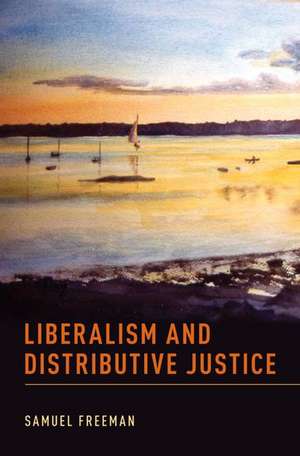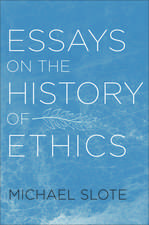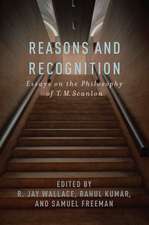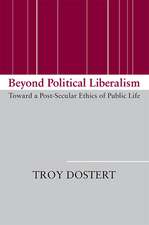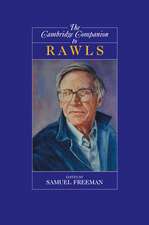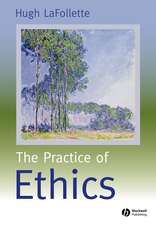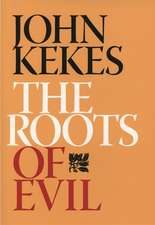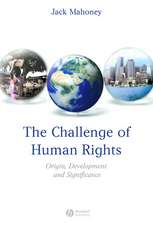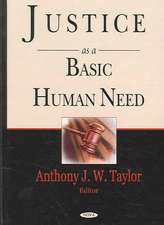Liberalism and Distributive Justice
Autor Samuel Freemanen Limba Engleză Hardback – 16 aug 2018
| Toate formatele și edițiile | Preț | Express |
|---|---|---|
| Paperback (1) | 169.03 lei 31-38 zile | |
| Oxford University Press – 29 apr 2022 | 169.03 lei 31-38 zile | |
| Hardback (1) | 470.18 lei 31-38 zile | |
| Oxford University Press – 16 aug 2018 | 470.18 lei 31-38 zile |
Preț: 470.18 lei
Preț vechi: 520.64 lei
-10% Nou
Puncte Express: 705
Preț estimativ în valută:
89.97€ • 96.21$ • 75.01£
89.97€ • 96.21$ • 75.01£
Carte tipărită la comandă
Livrare economică 07-14 aprilie
Preluare comenzi: 021 569.72.76
Specificații
ISBN-13: 9780190699260
ISBN-10: 0190699264
Pagini: 368
Dimensiuni: 236 x 163 x 33 mm
Greutate: 0.64 kg
Editura: Oxford University Press
Colecția OUP USA
Locul publicării:New York, United States
ISBN-10: 0190699264
Pagini: 368
Dimensiuni: 236 x 163 x 33 mm
Greutate: 0.64 kg
Editura: Oxford University Press
Colecția OUP USA
Locul publicării:New York, United States
Notă biografică
Samuel Freeman is the Avalon Foundation Professor in the Humanities and Professor of Philosophy and of Law at the University of Pennsylvania. He is the author of Justice and the Social Contract (OUP 2007) and of Rawls (2007). He is the editor of The Collected Papers of John Rawls (1999), and John Rawls's Essays in the History of Political Philosophy (2007).
Recenzii
This is an excellent book that advances our understanding of the liberal project in general and the Rawlsian liberal project in particular. It will be of great benefit to anyone interested in liberalism, justice, and the political philosophy of John Rawls.
[These] essays are of admirable clarity, arguing for their positions in meticulous detail. For those interested in a comprehensive overview of Freeman's understanding of Rawlsian justice, the collection is likely to be an extremely valuable resource, not least for teaching.
The papers in Liberalism and Distributive Justice usually begin from an interpretative question about Rawls; but that is rarely where they end up. The core of the book takes forward the Rawlsian project by seriously engaging with its aim: the development of a realistically utopian private property system that is not capitalist...Given the extent of the secondary literature on Rawls the comparative neglect of this topic has been surprising.
Sam Freeman makes a novel argument for property-owning democracy over welfare-state capitalism...which is a proposed friendly amendment to Rawls's conception of fair equality of opportunity
Samuel Freeman's Liberalism and Distributive Justice addresses and corrects a number of confusions that have characterized accounts of Rawlsian justice and provides the foundations for a clear understanding of the logic underlying justice as fairness.
[These] essays are of admirable clarity, arguing for their positions in meticulous detail. For those interested in a comprehensive overview of Freeman's understanding of Rawlsian justice, the collection is likely to be an extremely valuable resource, not least for teaching.
The papers in Liberalism and Distributive Justice usually begin from an interpretative question about Rawls; but that is rarely where they end up. The core of the book takes forward the Rawlsian project by seriously engaging with its aim: the development of a realistically utopian private property system that is not capitalist...Given the extent of the secondary literature on Rawls the comparative neglect of this topic has been surprising.
Sam Freeman makes a novel argument for property-owning democracy over welfare-state capitalism...which is a proposed friendly amendment to Rawls's conception of fair equality of opportunity
Samuel Freeman's Liberalism and Distributive Justice addresses and corrects a number of confusions that have characterized accounts of Rawlsian justice and provides the foundations for a clear understanding of the logic underlying justice as fairness.
